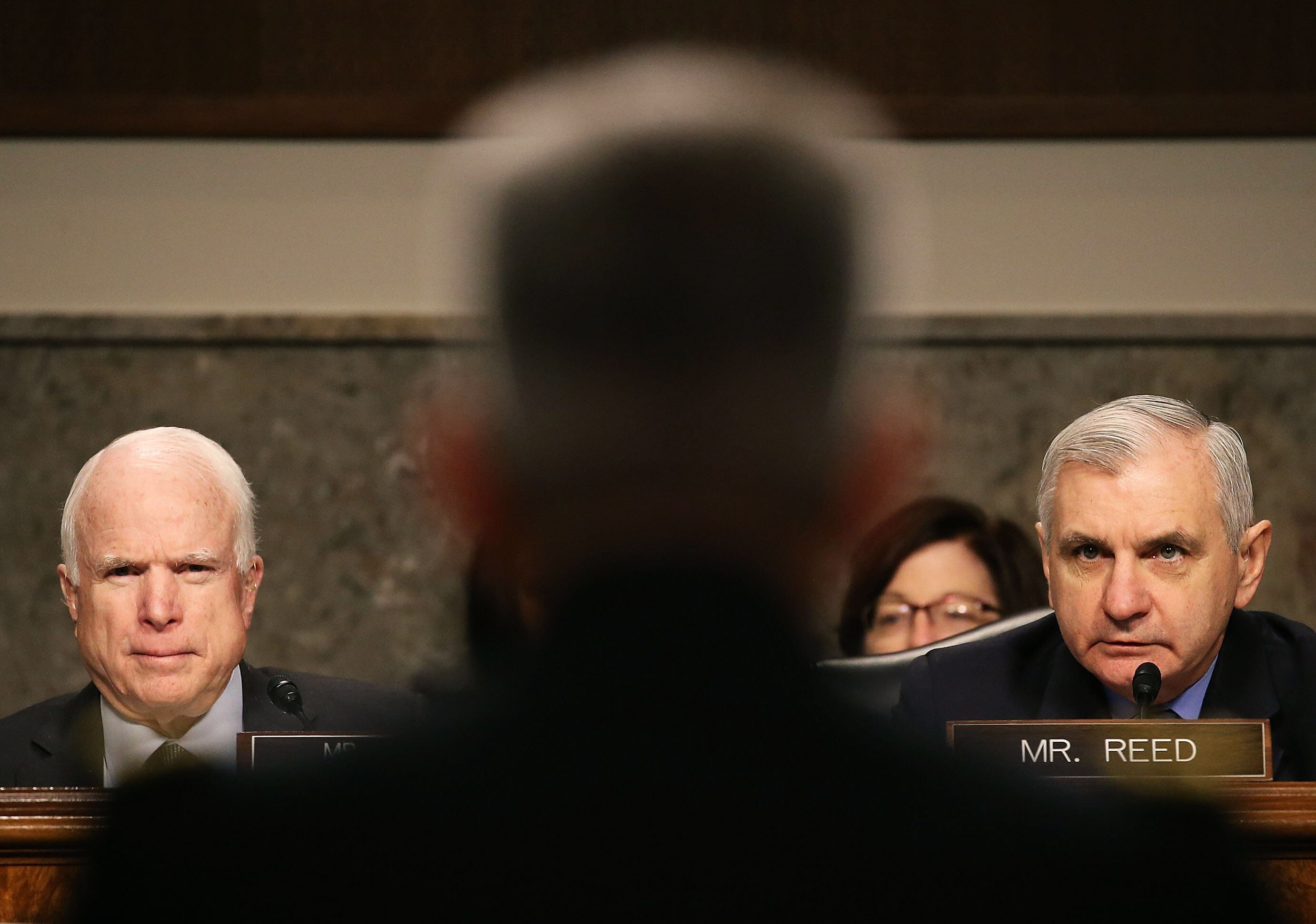WASHINGTON — Hurricane Harvey may help Congress delay a possible government shutdown and put off a fight over the federal budget.
Congress is expected to tie must-pass emergency aid for victims of the hurricane to three-month stop-gap government funding and an increase for the borrowing limit, which expires Oct. 1. That in turn would let Congress punt any big battles over the 2018 budget to make room to discuss tax reform.
Rep. Mark Meadows, the chairman of the conservative House Freedom Caucus, told ABC News on Tuesday he and many of his group’s members want to avert a government shutdown this fall. He suggested conservatives would vote for a continuing resolution next week, with as much as $20 billion for hurricane funding attached.
“If there’s going to be a shutdown fight, I would see that that would happen in December or January … but not in September and certainly not along with the disaster we’re facing in Texas,” said Meadows, R-N.C.
Meadows also said his members want to avert a shutdown in September even if no money is included for a proposed U.S.-Mexico border wall, a signature issue of President Donald Trump’s campaign.
Last week, at a campaign rally in Phoenix, Arizona, Trump suggested he would let a shutdown happen if Congress does not include appropriations for the wall. The House has passed a package of appropriations that included $1.6 billion for a wall, as well as defense spending.
Trump has since asked Congress to quickly pass Harvey aid, which suggests to some analysts he would go along with any measure that has Harvey funding attached.
“No politician would want to touch [a shutdown now], not in the House or the Senate, let alone the president,” said Gordon Adams, who oversaw defense budgeting for the Clinton administration. “In an odd kind of way, Harvey becomes the horse that draws the debt ceiling and CR carts.”
Harvey is said to be one of the worst natural disasters in U.S. history, and it’s not over yet. Since making landfall on the Gulf Coast of Texas on Friday, the ongoing storm has killed at least 38 people, left more than 30,000 people displaced, and has destroyed or damaged between 30,000 and 40,000 homes.
Passing a CR with Harvey funding and raising the debt limit still leaves until November and December fights over the wall, tax reform, and the balance between defense and nondefense funding.
Another scenario is the debt ceiling is raised until November or December, raising the stakes for a grand bargain that includes some or all of the above.
“Such packages are arguably not the best for government because so much is in them,” said former Department of Defense Comptroller Bob Hale. “But in a sharply divided country, where each side is looking for leverage, I think it is true that nothing major can get resolved until everything major is resolved.”
If somehow Trump is dissatisfied with the final deal, will he stand firm on his shutdown threat? It’s hard to say.
“From President Trump’s perspective, it sounds like a very effective negotiating tactic, and it mirrors his previous negotiating tactics,” said Katherine Blakeley, a defense budget expert with the Center for Strategic and Budgetary Assessments. “But in his eight months as president we have seen him draw red lines and then forget they ever existed.”
A short-term CR is nothing new for defense contractors and the military, though it means the DoD treads water at 2017 funding levels with no new-start programs. Averting a shutdown would be a win for the Defense Department and Veterans Affairs, where there were unpaid furloughs for civilian workers during the last extended government shutdown, in October 2013.
Defense Secretary Jim Mattis on Thursday declined to say whether he was confident there would be a CR, and said he planned to work with Congress.
”We’ve already got meetings scheduled to sit down with them and talk about the way forward,” he said. “This is up to Congress. That’s why I need to stay on top with them. Is it going to be a budget, is it going to be a CR, a short-term CR, all of those things, we need to work with Congress on.”
A fiscal 2018 omnibus spending package is presumed to take shape after September with low expectations for big-league defense buildup. Budget watchers are looking to the Senate Appropriations Committee, which has yet to pass a defense appropriations bill, to influence the final defense number.
RELATED

Congress is expected to take up an additional wartime spending measure to fund operations in Afghanistan, which would likely be exempt from budget caps. On Thursday, Mattis confirmed he has signed orders for new troops to deploy to Afghanistan, in line with the administration’s South Asia strategy, and said he plans to brief Congress on plans there on Sept. 6.
Still, it remains unclear what scope there is for Democrats and more mainline conservatives, in opposition to GOP fiscal hawks, to raise budget caps to accommodate proposed regular 2018 spending.
“People are talking about it as though it’s being punted until December, but the political divisions are the same ones as in 2013 and 2015 when we saw sequester for cap-relief bill,” Blakeley said. “If anything, they’re deeper.”
Adams predicts that splits in the House GOP will force a bipartisan deal to get a final appropriations bill. If Democrats are involved, it’s likely to mean domestic discretionary spending rises, but he said Democrats have less leverage to get parity with defense accounts.
“Where I think this falls off prior years is I think Democrats will settle for a lower increase for domestic than the increase for defense,” Adams said. “They’re holding out for [parity], but I don’t think that holds.”
Aaron Mehta in Washington, D.C., contributed to this report.
Joe Gould was the senior Pentagon reporter for Defense News, covering the intersection of national security policy, politics and the defense industry. He had previously served as Congress reporter.








